How can I get involved in gorilla rescue initiatives?
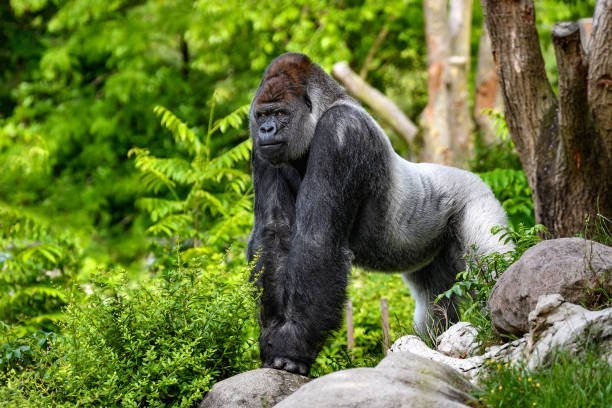
Introduction:
In this article, I’ll guide you on how to become a vital part of gorilla rescue initiatives, a noble cause aimed at safeguarding one of our planet’s most endangered and majestic creatures. Gorillas, both mountain and lowland species, face numerous threats, including habitat destruction, poaching, and disease. However, through concerted conservation efforts and dedicated individuals, there is hope for their survival.
If you’re passionate about wildlife conservation and wish to make a tangible difference in the lives of gorillas, this guide will provide you with the necessary steps and insights. Whether you’re an aspiring field biologist, a fundraiser, or someone with a strong desire to contribute to their protection, there are various ways you can get involved and support these remarkable primates. Join us as we explore the avenues available to make a meaningful impact in the world of gorilla rescue and preservation.
Volunteer with gorilla conservation organizations.
Volunteering with gorilla conservation organizations is a powerful way to directly contribute to the preservation of these remarkable creatures and their natural habitats. These organizations rely on the dedication and support of passionate individuals to carry out their crucial work. By volunteering, you can become an active participant in their efforts and make a meaningful impact. Typically, these organizations offer a range of volunteer opportunities, which can vary from short-term commitments like volunteering for a few weeks to long-term positions that can extend for several months or more.
When you volunteer with gorilla conservation organizations, you might find yourself involved in a wide array of tasks, depending on your skills, interests, and the organization’s needs. This could include activities such as habitat restoration, data collection, anti-poaching patrols, and community engagement. You may work directly with experienced conservationists, researchers, and local communities to gain valuable insights into gorilla behavior and habitat dynamics. Furthermore, your presence can serve as a source of inspiration and support for the local communities, fostering a sense of shared responsibility for the protection of gorillas.
One important aspect to consider when volunteering is choosing a reputable and ethical organization that aligns with your values and goals. Such organizations often provide training and support for their volunteers, ensuring that your contribution is effective and sustainable. By dedicating your time and energy to gorilla conservation, you become an integral part of the global effort to protect these magnificent primates and the ecosystems they inhabit.
Support gorilla sanctuaries financially.
Financial support for gorilla sanctuaries is a crucial lifeline for the care and rehabilitation of orphaned and injured gorillas. Gorilla sanctuaries play a vital role in rescuing and rehabilitating gorillas that have been victims of poaching, habitat destruction, or the illegal wildlife trade. These sanctuaries provide a safe haven where gorillas can recover and learn essential skills needed for their eventual return to the wild. To sustain their operations and continue rescuing gorillas in need, these organizations heavily depend on donations and financial contributions.
When you choose to support gorilla sanctuaries financially, you are directly contributing to the well-being of these incredible creatures. Your donations can be used for a variety of purposes, including food, medical care, staff salaries, and the construction of suitable enclosures. In addition, your support helps fund education and community outreach programs that raise awareness about gorilla conservation and the importance of protecting these charismatic animals.
Moreover, many gorilla sanctuaries offer opportunities for individuals to “adopt” a gorilla, where you can symbolically sponsor the care of a specific gorilla in their facility. This provides a more personal connection to the cause and allows you to track the progress of the gorilla you support. By supporting gorilla sanctuaries financially, you are directly contributing to the survival of these endangered species, ensuring they receive the care they need, and ultimately, working towards their release back into their natural habitats.
Join wildlife protection programs.
Joining wildlife protection programs can be a transformative way to immerse yourself in the world of gorilla conservation. These programs are often organized by governmental or non-governmental organizations with a focus on preserving wildlife, and they offer a range of opportunities for involvement. Whether you’re interested in becoming a park ranger, a wildlife law enforcement officer, or participating in anti-poaching initiatives, wildlife protection programs provide a platform for you to actively safeguard gorillas and their environments.
One of the primary roles within wildlife protection programs is that of a park ranger. Rangers are at the forefront of wildlife conservation efforts, patrolling protected areas, monitoring wildlife populations, and enforcing anti-poaching laws. By joining their ranks, you become a guardian of the gorillas, working tirelessly to protect them from the threats of poaching and habitat degradation. This role often requires rigorous training, dedication, and a deep understanding of the ecosystems in which gorillas live.
Furthermore, wildlife protection programs offer opportunities to engage in research and monitoring activities. This can involve collecting data on gorilla behavior, habitat use, and population dynamics, which is essential for making informed conservation decisions. As a participant in these programs, you’ll have the chance to work with experienced researchers, gaining valuable insights into the lives of gorillas and their ecosystems.
Your involvement in wildlife protection programs also extends to engaging with local communities living near gorilla habitats. These programs often include community outreach and education initiatives aimed at fostering positive relationships between communities and gorilla conservation efforts. By joining such programs, you can play a critical role in raising awareness, providing alternative livelihoods, and encouraging sustainable practices that benefit both people and gorillas.
Educate yourself about gorilla conservation.
Education is a fundamental step on the journey to becoming actively involved in gorilla rescue initiatives. By acquiring knowledge about gorilla conservation, you not only enrich your understanding of these magnificent creatures but also equip yourself to advocate effectively for their protection. There are several key aspects to focus on when educating yourself about gorilla conservation.
To begin, it’s essential to grasp the biology, behavior, and ecological significance of gorillas. Understanding the different gorilla species, their social structures, and the crucial roles they play in their ecosystems is foundational. This knowledge enables you to appreciate the specific challenges gorillas face in the wild, from habitat loss due to deforestation to the ever-present threat of poaching.
Additionally, familiarize yourself with the conservation organizations, sanctuaries, and initiatives dedicated to gorilla protection. Learn about their missions, strategies, and the regions where they operate. Research the latest advancements in gorilla conservation, including successful reintroduction programs and innovative approaches to mitigating human-wildlife conflicts.
Moreover, educating yourself about the cultural and socio-economic contexts of the regions where gorillas live is vital. Understanding the challenges faced by local communities, as well as the cultural significance of gorillas in those areas, is crucial for creating effective and sustainable conservation strategies.
To stay updated and informed, follow reputable news sources, research papers, and conservation organizations dedicated to gorilla conservation. Consider attending workshops, webinars, and conferences related to primate conservation to connect with experts and like-minded individuals. Your knowledge will empower you to engage in informed discussions, support advocacy efforts, and make well-informed decisions when participating in gorilla rescue initiatives.
Fundraise for gorilla rescue efforts.
Fundraising for gorilla rescue efforts is a potent means of channeling resources towards critical conservation projects. Financial support is indispensable for the success of these initiatives, and your role as a fundraiser can make a substantial impact. There are numerous ways you can engage in fundraising activities, from organizing events to launching online campaigns and partnering with conservation organizations.
Fundraising events can take various forms, including charity walks, runs, auctions, and galas. These events provide platforms for raising both awareness and funds for gorilla rescue initiatives. By bringing people together for a common cause, you can inspire a sense of community and solidarity that contributes to the overall success of the campaign.
Online fundraising campaigns have gained significant popularity in recent years. Crowdfunding platforms allow individuals to set up campaigns and reach a global audience with their message. You can use these platforms to tell compelling stories about the gorillas, share the urgency of their situation, and invite people to contribute. Social media plays a crucial role in spreading the word about your campaign, making it accessible to a wide range of potential donors.
Collaborating with conservation organizations is another effective fundraising strategy. Many of these organizations run their fundraising campaigns and programs, and you can partner with them to support their ongoing projects. By doing so, you leverage their expertise and credibility, increasing the trustworthiness of your fundraising efforts.
Participate in field research and monitoring.
Participating in field research and monitoring activities is a unique opportunity to gain hands-on experience in gorilla conservation while making significant contributions to our understanding of these magnificent creatures. Field research is an essential component of conservation efforts, as it provides crucial data for making informed decisions and implementing effective strategies.
Field research involves studying gorillas in their natural habitats. This often requires spending extended periods in remote and challenging environments, observing gorilla behavior, collecting data on their movements, social structures, and health, and documenting changes in their habitat. Researchers play a critical role in advancing our knowledge of gorillas and their ecosystems.
To participate in field research, you may need to collaborate with universities, research institutions, or conservation organizations conducting such studies. Research teams are typically multidisciplinary, including biologists, veterinarians, and social scientists, each contributing their expertise to different aspects of gorilla research.
In addition to directly contributing to our understanding of gorillas, field research and monitoring can aid in the identification of emerging threats, such as disease outbreaks or illegal activities like poaching. This information is invaluable for designing and implementing targeted conservation measures.
Engaging in field research and monitoring can be a physically and mentally demanding endeavor, but the rewards are immeasurable. You not only gain a deep appreciation for gorillas and their habitats but also contribute to their long-term conservation by generating the knowledge needed to develop and adapt protection strategies.
Promote gorilla-friendly tourism.
Promoting gorilla-friendly tourism is a strategy that aligns conservation with sustainable economic development. Responsible tourism can generate revenue that supports gorilla conservation efforts while providing local communities with opportunities for growth and prosperity. By encouraging and engaging in gorilla-friendly tourism, you become an advocate for a harmonious coexistence between humans and gorillas.
One of the key aspects of gorilla-friendly tourism is promoting ethical wildlife viewing practices. When visitors are allowed to observe gorillas in their natural habitat, it’s crucial that these encounters are conducted with respect for the animals and their environment. This includes adhering to strict rules and guidelines, such as maintaining a respectful distance, minimizing noise, and not littering. Promoting and practicing responsible tourism ensures that gorillas are not unduly stressed or harmed by human presence.
Moreover, supporting gorilla-friendly lodges and tour operators can have a positive impact on conservation. These businesses often commit a portion of their profits to conservation initiatives and engage in sustainable practices that reduce their environmental footprint. By choosing to stay at these establishments, you contribute to gorilla protection indirectly, as a portion of your spending goes towards conservation efforts.
Education plays a vital role in promoting gorilla-friendly tourism. Advocates in this field often work to raise awareness among tourists about the importance of responsible behavior and the broader conservation goals. By providing information on gorilla biology, conservation challenges, and the significance of ethical tourism, you help travelers make informed and responsible choices during their visits.
Advocate for gorilla protection policies.
Advocating for gorilla protection policies is a critical step in ensuring the long-term survival of these endangered creatures. Policies and legislation at local, national, and international levels have a profound impact on gorilla conservation, from habitat protection to anti-poaching efforts. As an advocate, you can influence these policies and promote the legal framework needed for their safeguarding.
One avenue for advocacy is engaging with governmental bodies, such as wildlife departments and ministries, to lobby for stronger legislation and policies that protect gorillas and their habitats. This can involve working with conservation organizations and experts to provide data, research findings, and recommendations to support evidence-based policy decisions.
International organizations and treaties also play a significant role in gorilla conservation. Engaging with bodies like the Convention on International Trade in Endangered Species of Wild Fauna and Flora (CITES) can help strengthen global regulations that govern the trade of gorilla products and ensure the protection of these animals across borders.
Advocacy can extend to raising public awareness about gorilla conservation and building public support for protective measures. This may include organizing campaigns, protests, or educational initiatives that inspire individuals to take action and exert pressure on decision-makers to prioritize gorilla protection.
Lastly, advocating for gorilla protection policies often involves collaborating with other conservation organizations and like-minded individuals. By forming coalitions and partnerships, you can amplify your efforts and create a united front that drives policy changes and legal protections for gorillas.
Conclusion:
In conclusion, I hope this comprehensive exploration of how to get involved in gorilla rescue initiatives has shed light on the various ways individuals can make a meaningful difference in the conservation of these extraordinary creatures. Gorillas, on the brink of extinction due to habitat loss and poaching, need dedicated champions now more than ever. Whether you choose to volunteer with gorilla conservation organizations, support sanctuaries financially, join wildlife protection programs, educate yourself about gorilla conservation, fundraise, participate in field research, promote gorilla-friendly tourism, or advocate for protective policies, your contribution is invaluable.
Each pathway offers a unique opportunity to engage with the world of gorilla conservation, aligning your passion and skills with the urgent need for their protection. By taking action and committing to these initiatives, you become a vital part of the global effort to secure the future of gorillas and, in doing so, enrich the biodiversity of our planet and inspire future generations to cherish and protect our shared natural heritage.
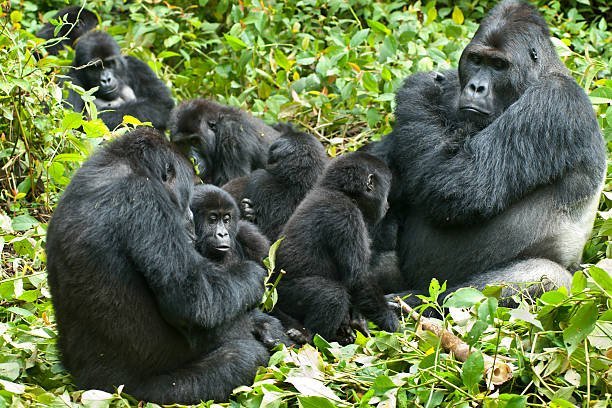


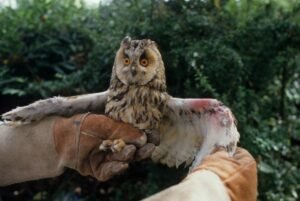


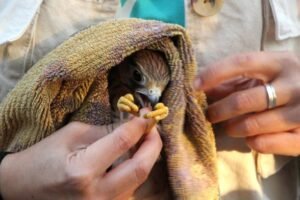

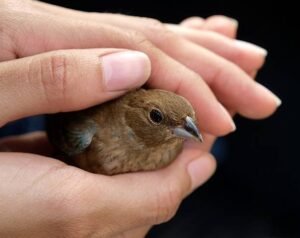

Post Comment